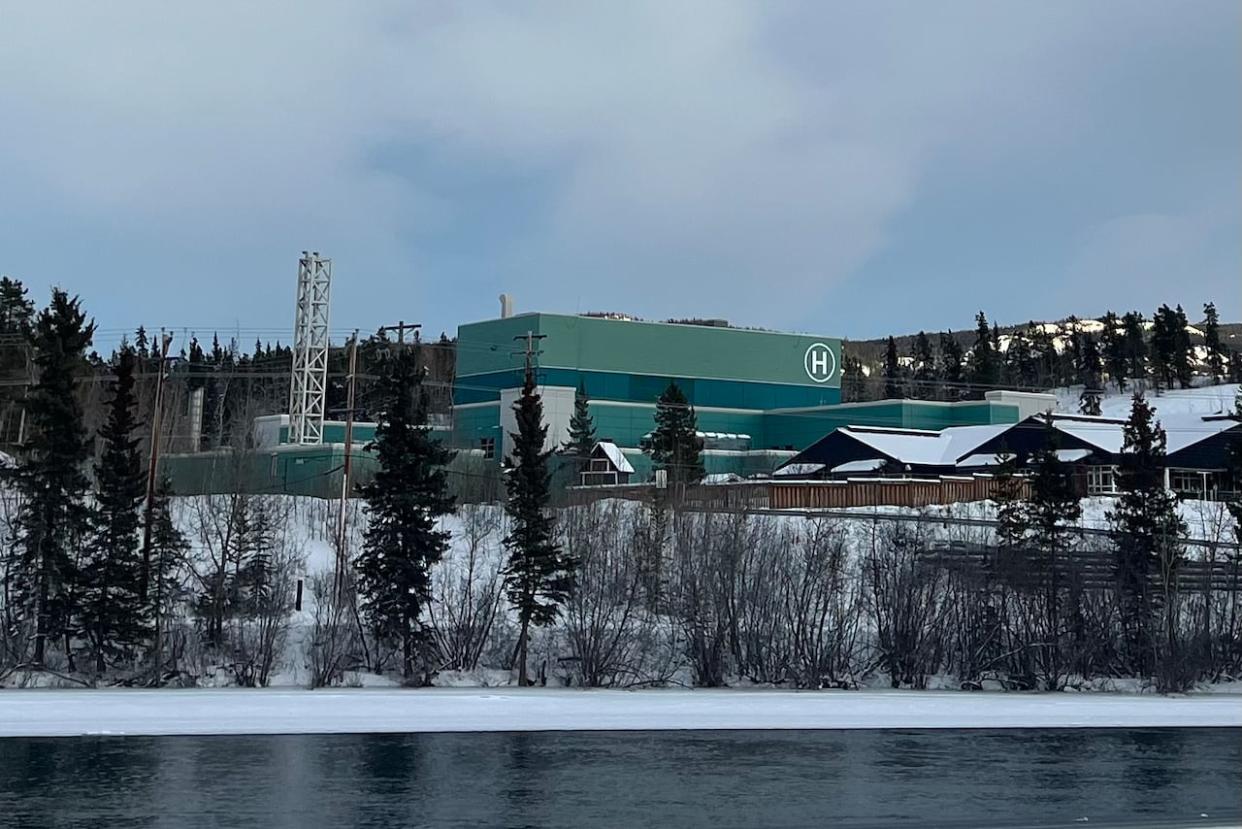'A healthcare system that has broken down': Whitehorse doctor says emergency department being overwhelmed

A high dependency on the Whitehorse General Hospital's emergency department for non-urgent medical needs has created "dangerous" conditions for patients and "atrocious" working conditions for staff, a local doctor says.
Dr. Rao Tadepalli, one of several physicians who works in the department, wrote on X (formerly Twitter) last week that "Canada has become a disastrous place" for healthcare, including in Whitehorse.
In an interview, he said the Yukon's healthcare system hasn't kept up with the needs of a growing population, and a lack of resources — including a shortage of family doctors — means people are increasingly turning to the emergency department for various medical needs.
That's an issue, Tadepalli said, because the department isn't designed for staff to provide, for example, extended in-patient care or ongoing treatment for chronic conditions.
"It's become, now, a norm that up to 50 per cent of the emergency is not usable because of admitted patients and sometimes it's reaching to a capacity of 100 per cent," he said, adding that he's seen patients who have stayed in emergency for up to three days.
"There is no end insight and so it's a totally negative experience. It's a healthcare system that has broken down. It's not meeting the needs of Yukoners."
CBC News requested an interview with the Yukon Hospital Corporation, but spokesperson Jessica Apolloni would only provide a written response.
"We all agree, the pressures on the system are due to increased population, need and complexity, health human resource constraints and inflationary costs," she wrote.
"Our emergency departments are busier, wait times are longer in many areas and hospital bed availability is very limited on most days."
However, Yukoners' "overall time in hospital receiving emergency care is reasonable compared to other jurisdictions in Canada," Apolloni wrote. She couldn't provide the average wait time for the Whitehorse emergency department, but confirmed that the hospital, overall, was at 100 per cent capacity on Friday morning.
Statistics on the Yukon Hospital Corporation's website say that the overall average occupancy at Whitehorse General Hospital in 2022 was 96 per cent (statistics for 2023 were not yet available).
"We continually work with all our partners, physicians and government to address the pressures within the health system and hospitals," Apolloni wrote.
"In a challenging environment, our teams continue to provide great care and patients can expect the quality and safe care they need, when it's needed most."
Issue needs to be depoliticized, Tadepalli says
Tadepalli, however, said the "continual bed crisis" meant that the hospital wasn't a place "where you can expect safe patient care, when the system is overwhelmed."
"It could be somebody experiencing, like, a chest pain or other critical conditions where they're not seen timely because there's not a space to see them," he said. "And of course they will be prioritized, but then it could be a child with a broken arm that's waiting for hours before [being] seen."
While he said he didn't blame the current territorial government for the situation and believed there were some "genuine efforts" being made to address it, he also said more than just "Band-Aid" solutions were required.
Besides recruiting more family doctors, Tadepalli said he believed there also needs to be another facility besides the emergency department to accommodate patients who don't need around-the-clock care but are not well enough to be sent back home.
He also suggested that the Whitehorse hospital needed to be rebuilt.
"It's just too old… It's not, you know, meant for a modern city existence," he said.
Tadepalli added that he thought the Yukon needs to "depoliticize" the issue, move away from "blame culture" and look at how to actually address healthcare needs.
"It's like, what can Whitehorse and Yukon Territory do, right?" he said. "If you don't have healthcare … it's not going to work."

